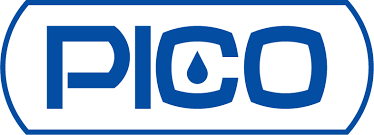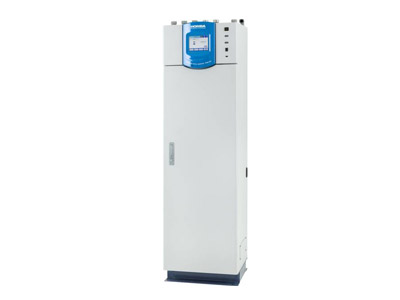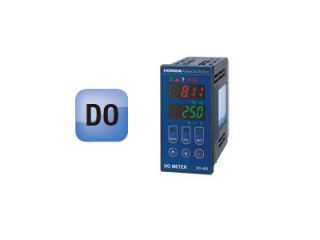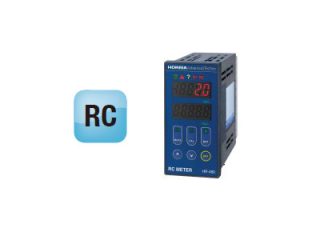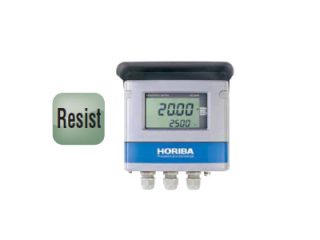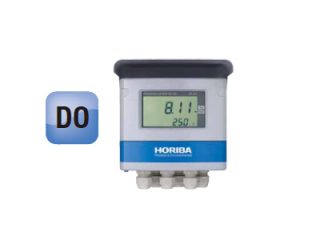Automatic Total Nitrogen/Phosphorus Monitoring System – Reduction in Life Cycle Cost (LCC)
Scientific Product
Assistant Buniness Unit Manager : Miss. Rotsukon Chanseeharat
Tel : 081-988-2819
E-mail : rotsukon@pico.co.th
Admin
Tel : 02-939-5711 ext. 611
E-mail : scientific@pico.co.th
Overview
More than 10 years have passed since the 5th Water Use Regulation was enforced in 2001. From the perspective on preservation of ambient water quality, it has become a matter of course for companies to be compliant with regulations and observe corporate compliance. Total nitrogen and total phosphorus monitoring in the future has the potential to lead to proactive enhancement of corporate value, in addition to compliance with regulations. While we propose technological innovations and improvements and LCC*1reductions, we will pursue the future where regulations are strictly observed and corporate value is improved through monitoring.
Features
- Adoption of stain resistant measurement system
While adopting a reduced reagent volume (1/10) realized by our conventional
model, employing a new measurement method (meniscus measurement
method) and enhanced automatic washing functions (optional) have been
achieved, contributing to lengthening the maintenance cycle.
- Reduction in power consumption by approximately 30%,
and pure water and waste water to 1/2
We have reduced the cost for electricity, use of pure water and waste water
treatment (including labor) as well as environmental burden (as compared
with our conventional product).
- A variety of washing functions
sampling point backwash purge function,
line washing function during reagent change, automatic sample line
washing function*2
- Ultraviolet oxidation decomposition method
Domestic market share of approximately 60%. No. 1 in the industry*3
- Color touch panel
Improved visibility and operability.
- A built-in load volume operation function
- USB data output port
*1_Life Cycle Cost (LCC): Total cost required from purchase to disposal of a product. Total sum of product cost, installation cost, utility cost (electricity and water), running cost (reagent, waste water treatment, parts and man-hours), maintenance cost (regular overhauls and irregular man-hours), dismantling cost, disposal cost, etc.
*2_Hydraulic acid washing is optional.
*3_As of November, 2013. Based on our company’s research.
Specifications
| Name | Automatic Total Nitrogen/Phosphorus Monitoring System |
| Model | TPNA-500 |
| External dimensions*1 | 460(W) mm×385 mm(D)×1600 mm(H) |
| Weight | Approx. 90 kg |
| Power | AC 100 V~240 V±10% 50/60 Hz |
| Electric power consumption | AC 100 V~240 V:約250 VA |
| Measuring range*2 | Total nitrogen:0~2/5/10/20/50/100/200/500/1000 mgN/L Total phosphorus:0~0.5/1/2/5/10/20/50/100/250 mgP/L |
| Repeatability | Within ±3% full scale (Total nitrogen full scale:50 mgN/L or lower and Total phosphorus full scale:10 mgP/L or lower ) Within ±5% full scale (Total nitrogen full scale:100~1000 mgN/L and Total phosphorus full scale:20~250mgP/L) Condition: using standardized solution |
| Measurement principle | Total nitrogen: Alkaline potassium peroxodisulfate UV oxidation ― UV absorption method Total phosphorus: Potassium peroxodisulfate UV oxidation ― molybdenum blue absorption method |
| Number of measured components | 1 point (standard), 2 points (optional) |
| Number of measuring ranges *3 | 1 range (standard), 2 ranges (optional) |
| Measurement interval | 60 minutes |
| Ambient temperature | 2~40℃ |
| Ambient humidity | Relative humidity 85% or lower (no condensation) |
| Sample water conditions*4,5,6,7,8 | Temperature: 2 to 40℃ (without freezing) Flow rate: 0.5 to 5 L/min (Case using OF-3 or OF-4), 5~20L/min(Case using OF-30 or OF-40) |
| Pure water Conditions of tap water supply *9 |
Usage volume: 43 L/month *This may increase/decrease depending on the measurement range Condition: When pure water is supplied by a customer, shoud be JIS K0557(1998) A2 or higher and should not contain nitrogen or phosphorus compounds. When using deionizer, adherence to criteria of tap water in Water Supply Act is required. Supply method: Fixed water tank (standard), continuous supply via pure water supply system (optional) Supply pressure:0.1~0.5MPa |
| Display | LCD color touch panel display |
| Load calculation | Standard: TP, TN load calculation, Optional: COD, 2 points load calculation |
| Memory | Measurement values(including daily report and time signal): more than 1 year, Number of alarm records: 100, Number of calibration records: 100, Number of operation records: 100 ※The data can be exported through USB interface. |
| Communication | Standard: RS -485, Optional: RS-232C |
| Communication protocol | Modbus®*10 |
| Printer | Standard (58 mm); with automatic take-up device. |
*1_Compatible with the channel base of former products TPNA-300/PN-100 series (standard)
*2_0.2 ≤ total nitrogen full scale/total phosphorus full scale ≤ 100
*3_The first range shall be low concentrations, and for the same components measured, 1 ≤ second range full scale/first range full scale ≤ 50.
*4_A seawater adjustment function (optional) is available for when seawater is mixed in.
*5_A sample line chemical washing function (optional) is also available depending on sample conditions.
*6_The auxiliary overflow tank can be installed to the right or left or at the back of the system main body.
*7_The auxiliary overflow tank should be within 1m from the system main body.
*8_Should not contain components that affect measurement such as metal ions.
*9_When tap water is supplied, make sure to conduct flushing for approximately 30 minutes before introducing tap water into equipment.
*10_Modbus® is a registered trademark of Schneider Automation Inc.
